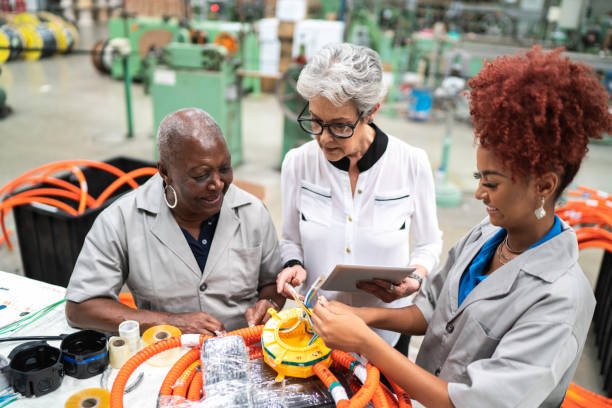Introduction
In the fast-paced world of live events, concerts, and theatre productions, lighting is one of the most crucial elements that bring a show to life. With the rise of sophisticated lighting consoles like GrandMA3, many aspiring lighting technicians often ask: “Do production companies require certified in GrandMA3?” This question isn’t just about obtaining a piece of paper—it’s about understanding industry expectations, technical skills, and career growth in professional lighting.
While certification can offer advantages, it’s not always mandatory. This article explores the role of GrandMA3 certification, its value to production companies, and the skills that truly matter when stepping into a professional lighting career.
Understanding GrandMA3 and Its Significance
What is GrandMA3?
GrandMA3 is the latest lighting control platform developed by MA Lighting, widely regarded as the industry standard for high-end live productions. This console allows lighting designers and operators to program, control, and execute complex lighting sequences with precision.
Key features of GrandMA3 include:
-
Advanced fixture control – Manage multiple lighting devices simultaneously.
-
Intuitive interface – Streamlined workflow for quick programming.
-
Networking capabilities – Seamless integration with other consoles and devices.
-
Show playback – Real-time control of cues, effects, and lighting sequences.
Given these capabilities, GrandMA3 has become a go-to choice for large-scale productions, festivals, and touring shows.
Why the Console is Important in Productions
Lighting isn’t just about aesthetics—it’s a storytelling tool. GrandMA3 provides the control and flexibility to create immersive experiences that enhance performances. Production companies rely on operators who can:
-
Ensure smooth cue transitions during live events.
-
Troubleshoot technical issues on the fly.
-
Collaborate with designers, directors, and stage crews efficiently.
The question of certification arises because companies want to ensure that their operators can handle the console confidently and professionally.
Certification in GrandMA3: What Does It Mean?
Types of GrandMA3 Certifications
MA Lighting offers official training and certification programs for GrandMA3, typically divided into:
-
Basic Level Certification – Covers fundamental programming and console operation.
-
Advanced Level Certification – Focuses on complex show setups, networking, and advanced features.
-
Specialized Workshops – Tailored courses for specific industries such as touring productions or theatre.
Upon completion, participants receive a certificate verifying their skills and understanding of the console.
Benefits of Certification
Even if not mandatory, certification offers several advantages:
-
Credibility – Shows potential employers you have formal training.
-
Technical Proficiency – Ensures familiarity with core features and best practices.
-
Networking Opportunities – Connect with trainers, peers, and industry professionals.
-
Career Advancement – May open doors to higher-paying or more prestigious jobs.
Do Production Companies Require Certified in GrandMA3?
The Real Industry Perspective
While certification can be a plus, most production companies do not strictly require it. Here’s why:
-
Hands-on Experience Matters More – Employers often prioritize proven experience over certificates. Being able to operate a console in live settings is more valuable than classroom training.
-
Transferable Skills – Experienced lighting technicians may quickly adapt to GrandMA3 even without certification if they’ve worked with other MA consoles.
-
On-the-Job Training – Many companies provide in-house training, especially for long-term employees or contractors.
When Certification Can Give You an Edge
Though not mandatory, certification can improve your chances in competitive scenarios:
-
Freelance Opportunities – Freelancers may be preferred if certified, as companies want quick, reliable operators for short-term projects.
-
High-End Productions – Large-scale concerts or complex shows may favor certified operators to reduce risk.
-
International Jobs – Certification is often recognized globally, which can help when working with touring productions.
Skills That Matter More Than Certification
While a certificate is nice to have, there are key competencies that production companies value more:
Technical Expertise
-
Programming and executing cues efficiently.
-
Understanding DMX, RDM, and other control protocols.
-
Troubleshooting console and fixture issues in real-time.
Creativity and Problem-Solving
-
Ability to interpret lighting designs accurately.
-
Adaptability to changing show requirements.
-
Quick thinking during live events.
Communication and Teamwork
-
Coordinating with lighting designers, stage managers, and production crews.
-
Clear communication under pressure.
-
Collaboration in multi-department environments.
Experience Across Platforms
-
Familiarity with different lighting consoles, not just GrandMA3.
-
Exposure to diverse lighting setups, from small theaters to stadiums.
How to Get Certified in GrandMA3
If you decide to pursue certification, here’s a step-by-step guide:
-
Research Authorized Training Centers – Check the official MA Lighting website for accredited institutions.
-
Select the Level – Start with basic certification if you’re new, or advanced if you have experience.
-
Enroll in Courses – Attend workshops, online classes, or intensive bootcamps.
-
Hands-On Practice – Practice extensively on actual consoles to gain confidence.
-
Pass the Certification Exam – Demonstrate your skills and understanding.
After certification, consider documenting your experience and including it in your portfolio or resume.
Balancing Certification and Experience
The ideal approach for aspiring lighting professionals is a combination of both:
-
Certification – Validates knowledge and shows dedication.
-
Practical Experience – Builds the skillset that production companies value most.
By striking this balance, you can increase your employability and position yourself as a competent and versatile lighting operator.
Conclusion
So, do production companies require certified in GrandMA3? The short answer is: not always. While certification can enhance credibility and open doors to specific opportunities, hands-on experience, technical skill, and adaptability are far more influential in the hiring process.
For aspiring lighting technicians, focusing on building practical expertise while pursuing certification selectively is the most effective strategy. In a field where live performance demands precision and creativity, the ability to operate consoles confidently and troubleshoot on the spot often outweighs a piece of paper.
Certification in GrandMA3 is a valuable asset, but it’s the combination of skill, experience, and professionalism that truly determines success in the live production industry.
Key Takeaways
-
Certification in GrandMA3 is beneficial but not always required.
-
Practical experience and technical proficiency are prioritized by employers.
-
Large-scale productions and freelance roles may value certification more.
-
A balanced approach—skills plus certification—maximizes career opportunities.
















Leave a Reply